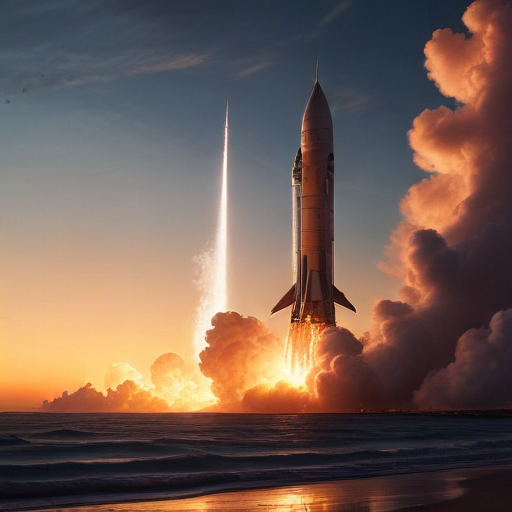Florida’s Space Coast concluded an exceptional year with a total of 93 launches conducted from Cape Canaveral Space Force Station and NASA’s Kennedy Space Center. This impressive figure represents a significant increase from the 74 launches recorded in 2023.
Brig. Gen. Kristin Panzenhagen, commander of the Eastern Range and Space Delta 45, attributed this surge in launch activities to advancements from both Space Launch Delta 45 and the private sector. She emphasized that the use of automation, infrastructure modernization, and refined processes were key factors in achieving these record numbers.
SpaceX, led by Elon Musk, was responsible for the lion’s share of these launches, with 88 out of 93 from the Eastern Range in 2024. Additionally, SpaceX carried out a remarkable total of 134 commercial and government missions throughout the year, including 62 launches from Cape Canaveral, 26 from Kennedy Space Center, and 46 from Vandenberg Space Force Base in California. The company also conducted four test flights of its advanced Starship vehicle from its facility in Texas.
To accommodate the increased frequency of launches, Space Launch Delta 45 implemented new procedures that successfully decreased turnaround times between missions. Panzenhagen noted that SpaceX’s cutting-edge automated flight safety technologies played a crucial role in minimizing the personnel and time needed for pre-launch preparations.
In response to SpaceX’s heightened launch cadence, the Space Force’s Space Systems Command launched the “One Falcon” initiative, which consolidates personnel across the Eastern and Western Ranges. This initiative allows teams to support launches from either coast, promoting resource flexibility and maximizing the talent available.
Although only four of the launches from the Eastern Range in 2024 were related to national security, the increase in commercial launches indirectly bolsters military operations. Innovations stemming from commercial space endeavors—such as infrastructure improvements and rapid-launch capabilities—enhance the resilience and responsiveness of national security missions, as illustrated by the recent “Rapid Response Trailblazer” mission that involved launching a GPS satellite within an accelerated timeframe.
Looking ahead, the Space Coast is bracing for heightened competition in the national security launch arena. Blue Origin, backed by Amazon founder Jeff Bezos, is set to introduce its New Glenn rocket in early 2025, having secured its position as a national security space launch provider in 2024. This development is seen as a positive move that could further strengthen resilience in launch capabilities.
Furthermore, United Launch Alliance’s Vulcan Centaur rocket is in the process of awaiting certification for national security missions after successfully completing two flights in 2024, despite facing a minor setback with one of its solid boosters. Panzenhagen highlighted the strong collaboration between the Space Force and ULA in navigating engineering challenges, expressing optimism for the Vulcan’s future flights.
In summary, Florida’s Space Coast has become a dynamic hub for space activity, showcasing advancements in technology and collaboration that enhance both commercial and national security operations. As new players enter the field, the future of space launches in the region appears bright, potentially paving the way for even greater achievements in the coming years.
